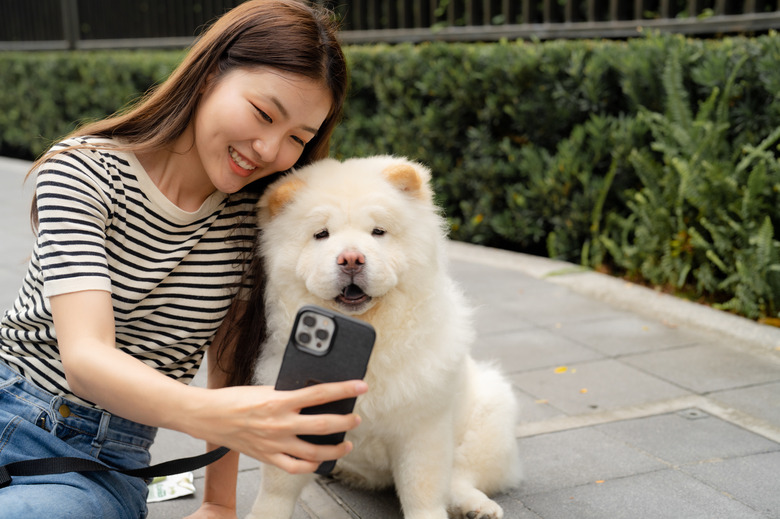How Much Is Too Much Diazepam For A Dog? Your Guide To Side Effects Of Diazepam In Dogs
Diazepam (brand name Valium) is a benzodiazepine tranquilizer, muscle relaxant, and anti-anxiety medication used in dogs to treat acute seizures and status epilepticus and as a sedative or anesthetic drug. Diazepam side effects in dogs include loss of energy and coordination problems. A controlled substance classified as an anti-convulsant and sedative, diazepam is used extra-label for canines.
What is diazepam for dogs?
What is diazepam for dogs?
Diazepam is a benzodiazepine tranquilizer that is prescribed for humans but is used extra-label for dogs.
Extra-label means that federal laws and the Food and Drug Administration (FDA) has not approved its use in dogs, but veterinarians can legally prescribe the drug under extra-label usage. However, extra-label also indicates that when administering the medication to dogs, the veterinarian's directions must be followed carefully because they may differ from what is on the label or package insert, which contains instructions intended for humans. Using medications extra-label is common in veterinary medicine. Diazepam comes in injectable, oral liquid, and tablet forms. In dogs, it can be administered orally, rectally, or by injection. Follow your veterinarian's instructions about how to give it.
Veterinarians may prescribe diazepam for:
- Epilepsy
- Acute seizures
- Status epilepticus (seizures lasting five minutes or more/multiple seizures within a five-minute period)
- General anxiety
- Pre-op anxiety
Diazepam side effects in dogs
Diazepam side effects in dogs
Some of diazepam's most common side effects in dogs are:
- Reduced energy
- Coordination issues
- Sedation
- Drowsiness
- Behavioral problems
- Aggression
- Vomiting
- Memory deficits
- Vocalization
- Occasional abnormal excitement
Diazepam may interact with other medications and cause central nervous system and respiratory depression. If you see any of these side effects of diazepam in your dog, notify your veterinarian as soon as possible.
Diazepam should not be prescribed for dogs with certain conditions:
- Liver or kidney disease
- Nursing or pregnant dogs
- Serious illness
- Respiratory depression
- Aggression issues
How do I know if my dog has a reaction to diazepam?
How do I know if my dog has a reaction to diazepam?
Indications that a dog is having an allergic reaction to diazepam are:
- Facial swelling
- Scratching
- Hives
- Throwing up
- Diarrhea
- Seizures
- Shock
- Cold limbs
- Coma
If you think your dog might be having an allergic reaction to diazepam, seek emergency veterinary care.
Can diazepam make my dog sick?
Can diazepam make my dog sick?
Although diazepam is often used successfully, it can make some dogs ill.
If your veterinarian prescribes diazepam for your dog, it is your responsibility to closely pay attention to exact dosage guidelines. Diazepam is a controlled medication, and it is possible for dogs to overdose on it.
If your dog is experiencing serious side effects or an overdose of diazepam, you might notice symptoms such as:
- Problems breathing
- Enhanced sedation
- Stumbling
- Lack of coordination
- Low body temperature
- Disorientation
- Weakness
- Initial excitement followed by depressed central nervous system
If you have any reason at all to think your dog might have overdosed on diazepam, seek emergency assistance immediately.
Is diazepam safe for dogs?
Is diazepam safe for dogs?
Diazepam is not safe or appropriate for use in all dogs.
If your dog is allergic to diazepam, it is not safe to use it. If your dog is aggressive or has kidney or liver disease, utmost care and vigilance are necessary for safe use of diazepam. The same applies to dogs who are dehydrated, anemic, elderly, in shock, or suffering from trouble breathing. This drug can bring on possible birth defects as well. This is why it's crucial that nursing, pregnant, and breeding dogs don't receive it.
Since diazepam brings on sedation, it's vital to be prudent in administering the medication to working dogs who have to be watchful or otherwise active and alert while on the job.
Does diazepam have any drug interactions?
Does diazepam have any drug interactions?
Interactions can occur in dogs who are taking diazepam and another drug at the same time. Diazepam can lead to possible interactions with:
- Valproic acids
- Central nervous depressants
- Antacids
- Rifampin
- Digoxin
- Cimetidine
- Erythromycin
- Metoprolol
- Propranolol
- Fluoxetine
- Ketoconazole.
- Protein-bound drugs
The bottom line
The bottom line
Diazepam, a benzodiazepine tranquilizer prescribed for humans, is sometimes prescribed extra-label for dogs with epilepsy or dogs who have seizures, especially if they last five minutes or more or if the dog has several seizures within a five-minute period. It is also given for anxiety. Diazepam is usually safe when the directions given by your DVM for its administration are followed carefully, as directions may differ from those on its label. However, even when directions are followed accurately, some dogs experience side effects that can be serious. Dogs who are given diazepam must be observed closely for potential side effects, and if troubling side effects are seen, you should seek emergency help immediately.




